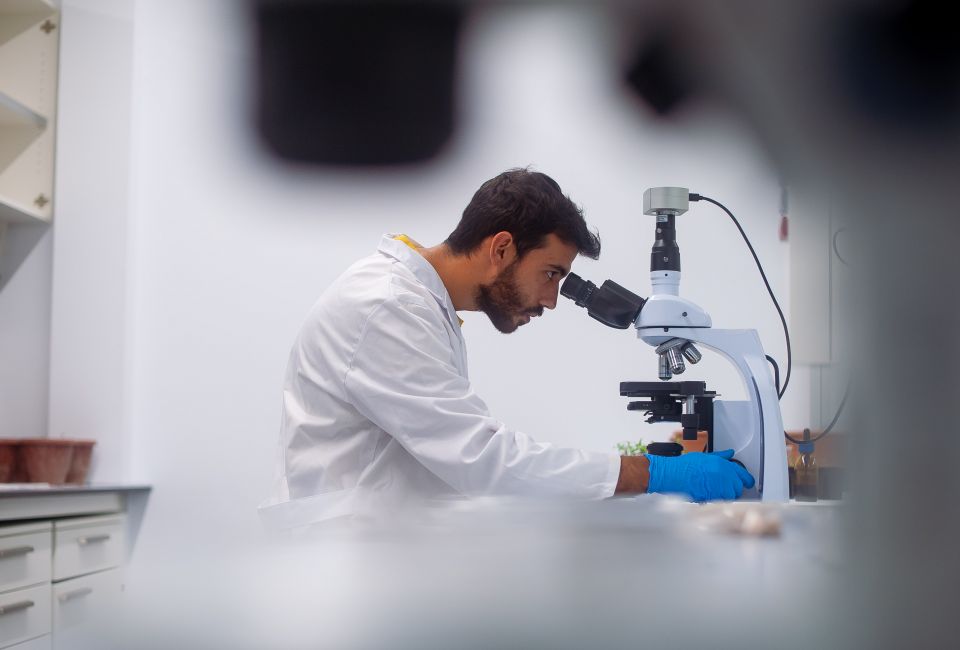
The Government of Catalonia recognises all 25 UVic-UCC research groups and provides funding for 3 of them
The 25 research groups currently working at the University of Vic – Universitat Central de Catalunya (UVic-UCC) have been recognised by the Government of Catalonia in the latest SGR-Cat 2021 (Research Group Support) call, which has just been published its provisional ruling. As in the last call, the University has once again achieved recognition for all of its research groups. Twenty of the 25 groups work at UVic; two at UManresa; one at the Foundation for Advanced Health Sciences Studies (FESS), which has a recognised research group for the first time; one at ELISAVA Faculty of Design and Engineering (the previously emerging group is now consolidated), and one at the BAU University Design Centre (affiliated to UVic-UCC). Twenty-one of the research groups have been accredited as established groups, and four as emerging groups.
The SGR call provided funding for a total of 140,000 Euros over the next three years, an amount practically identical to that of the previous call. The groups that have now obtained funds are: Gender Studies: Translation, Literature, History and Communication (GETLIHC), coordinated by Pilar Godayol; BETA, coordinated by Sergio Ponsá, and the Education Research Group of the University of Vic (GREUV), coordinated by Jordi Collet. All three are consolidated research groups.
Eva Espasa, the vice-rector for Research and Knowledge Transfer at UVic-UCC, is very satisfied with the recognition obtained in the SGR, and emphasises the increase in consolidated research groups at the UVic-UCC, from 14 in 2018 to this year's 21. "This is a very good indicator of the research that has been carried out at the University in recent years. It shows a consolidated trajectory over time, and adds value to the good work that is being done," she said. The vice-rector recalled that accreditation as a consolidated research group "is based on strict indicators" and on the fulfilment of specific parameters, such as obtaining competitive research projects led by the group, having six-year research periods, publishing in indexed journals and supervising doctoral theses, among others.
Espasa emphasised that in this latest SGR call, funding for UVic-UCC research groups was achieved in "three areas that are very extensive studied in the twenty-first century - gender studies, the environment and education." She also highlighted the fact that this recognition is the result of the work done by the research community, led by the group coordinators, and overseen by the previous Office of the Vice-rector for Research and Knowledge Transfer, and by the Technology Research and Transfer Unit (OTRI) at UVic-UCC.
In the previous call, which took place in 2018, UVic-UCC achieved recognition for all its research groups, which have made a very significant qualitative and quantitative improvement in recent years, bearing in mind that the University only had five accredited research groups (19%) in 2009.
The SGR calls organised by the Government of Catalonia, through the Catalan University and Research Grant Management Agency (AGAUR), support groups that undertake research in various scientific areas in Catalonia. The programme aims to foster the work done by the research groups and their scientific, economic and social impact, and to enhance the international profile of their research. Accredited groups may therefore be eligible for calls at higher levels, such as predoctoral FI and industrial doctorate calls, among others.
Reorganisation of research groups
The provisional ruling of the 2021 SGR call comes at the same time as the reorganisation of the research groups at UVic-UCC that has taken place in recent months, based on a commitment to establishing larger research teams. The increase in critical mass employed in research at the institution has been facilitated by a significant amount of teaching staff working full-time at the University who combine teaching and research roles. As a result, there are currently 25 research groups at UVic-UCC.
UVic has the following research groups: Gender Studies: Translation, Literature, History and Communication (GETLIHC); Biodiversity, Ecology, Technology and Environmental Management (BETA); Bioinformatics and Bioimaging (Bi-SQUARED); Aquatic Ecology (GEA); Tissue Repair and Regeneration (TR2Lab); Innovation in Mental Health and Social Welfare (ISaMBeS); Methodology, Methods, Models and Outcomes of Health and Social Sciences (M3O); Attention to Diversity Research Group (GRAD); Data Analysis and Modeling (DAM); Emprèn; Sport and Physical Activity Research Group (GREAF); Knowledge Construction Research Group (GRECC); Applied Linguistics, Didactics and Literature Research Group (GLOSSA); University of Vic Education Research Group (GREUV); Inclusive Societies, Policies and Communities (SoPCI); Sport, Exercise and Human Movement (SEaHM); Audiovisual Translation, Communication and Territory (TRACTE); Mechatronics and Modelling for Materials Technology (MECAMAT); Data and Signal Processing (TDS) and Digital Care.
UManresa has the Transformative Innovation and Simulation Research Group (GRITS) and the Epidemiology and Public Health in the Digital Health Context (Epi4Health) Research Group.
The Foundation for Advanced Health Sciences Studies is home to the Mechanisms of Disease Lab (MoDLab) research group.
Elisava has the Elisava Research-Human, Information, Materials, Technology, Society (HIMTS) group.
Finally, the BAU University Design Center (affiliated to the UVic-UCC), is home to the Design and Social Transformation Research Group (GREDITS).